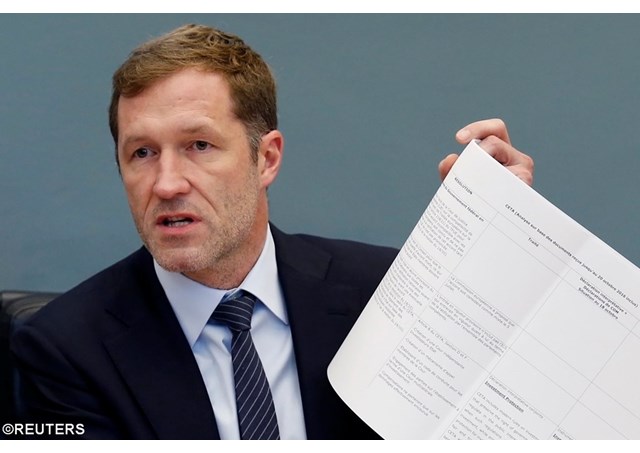
EU shaken by friction over Syria, Russia and Canada trade deal

(Vatican Radio) European Union leaders have pledged to keep all options open to respond to what they view as atrocities committed in Syria by Russia and President Bashar al-Assad's forces, but stopped short of explicitly threatening Moscow with sanctions. The two summits also failed to finalize a massive free trade deal with Canada by a self-imposed deadline on Friday as a tiny Belgian region is holding up the pact saying its objections had not been sufficiently addressed.
Listen to Stefan Bos' report:
The summit in Brussels underscored tensions within the increasingly shaky European
Union. Despite strong rhetoric against Russia's air strikes of the Syrian city of
Aleppo, EU leaders failed to agree on a tough joint statement warning Moscow that
it could face punitive measures.
The United Nations said Thursday Russian and Syrian bombing of Aleppo had killed nearly
500 people in the past month, and large parts of the city will face severe food shortages
by the end of this month.
Yet, Italy's prime minister prevailed upon other European leaders to exclude tough
language favored by France, Germany, the United Kingdom, and other EU nations that
would have explicitly threaten sanctions against Russian individuals and organizations
that support the Syrian government.
ITALY PERSUADING NATIONS
Italy was persuaded by other European after Russia earlier in the day instituted
a cease-fire in Aleppo that it said would last for 11 hours each day for the next
four days to allow humanitarian deliveries and the evacuation of the wounded.
However EU council president Donald Tusk told reporters: "Today is not about decisions,
but I want to underline that the EU should keep all options open including sanctions."
Internal tensions over Syria wasn't the only setback: the EU also failed to finalize
a massive free trade deal with Canada with a French speaking Belgian region saying
its objections had not been sufficiently addressed.
Paul Magnette, the president of Wallonia, spent hours talking with EU officials and
Canadian International Trade Minister Chrystia Freeland to find a compromise.
Talks will continue as the deal needs unanimity within the EU, and Belgium in turn
needs unanimity among its regions.
CONTINUING DISAGREEMENT
The disagreement has pitted Wallonia, a region of 3.5 million people that is smaller
than New Jersey, against the entire EU and Canada, with populations of over 500 million
and 35 million.
EU council president Tusk appeared visible frustrated when saying: "On CETA [as the
trade deal is known] let me just say I remain concerned for a good trade agreement
with our close partner and ally Canada and for Europe's reputation. All member states
but one endorse the agreement, the work continues with the best will and full engagement
of the Commission."
The disagreements come at a time when pressure is mounting on the EU to speak with
one voice towards Russia, which this week conducted drills involving state-of-the
art missiles near the nation’s western border.
The Defense Ministry said Thursday that the drills involving Iskander-M missiles,
which can carry nuclear war heads, near the city of Luga, only 100 kilometers east
of the border with EU member state Estonia.
Additionally, two British warships have been shadowing an aircraft carrier and other
Russian naval ships as they passed Britain on their way to Syria amid international
concerns they will be used to attack rebel held areas in Aleppo and beyond.
| All the contents on this site are copyrighted ©. |


